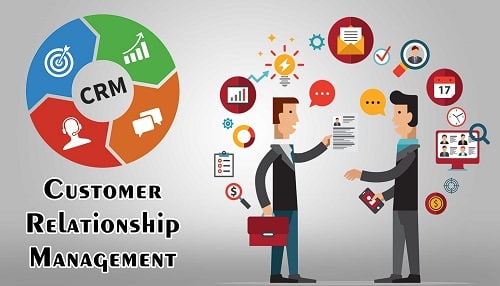Customer loyalty is essential for the long-term success of any business. It is much easier and more cost-effective to retain existing customers than to constantly attract new ones. Customer relationship management (CRM) is a strategy that businesses can use to increase customer loyalty. In this article, we will explore what CRM is, how it works, and how it can help businesses build long-term relationships with their customers.
Introduction to CRM
CRM is a business strategy that focuses on managing relationships with customers. It involves using technology to organize, automate, and synchronize sales, marketing, customer service, and technical support processes. The goal of CRM is to improve customer satisfaction, retention, and loyalty by providing better customer experiences.
Benefits of CRM
Implementing a CRM system can provide several benefits for businesses. Here are some of the most significant ones:
Improved customer experiences
CRM enables businesses to provide personalized and relevant experiences to their customers. By collecting and analyzing customer data, businesses can gain insights into their preferences, needs, and behavior. This information can be used to tailor marketing messages, offers, and interactions to each customer’s individual needs and preferences.
Increased customer loyalty
CRM helps businesses build stronger relationships with their customers. By providing better experiences and more personalized interactions, businesses can increase customer satisfaction and loyalty. Loyal customers are more likely to make repeat purchases, refer others to the business, and provide positive reviews and feedback.
Enhanced sales and marketing effectiveness
CRM can help businesses streamline their sales and marketing processes. By automating routine tasks, such as lead nurturing and follow-up, sales and marketing teams can focus on high-value activities, such as closing deals and developing new campaigns. CRM can also provide better visibility into sales and marketing performance, enabling businesses to make data-driven decisions and optimize their strategies.
How CRM Works
CRM is typically implemented using a software system that integrates customer data from multiple sources, such as sales, marketing, customer service, and social media. The system provides a centralized database that can be accessed by different teams and functions within the business. Here are the key components of a CRM system:
Customer database
The customer database is the heart of a CRM system. It contains detailed information about each customer, including their contact details, purchase history, preferences, and behavior. This data is used to personalize interactions and provide better experiences to customers.
Sales automation
CRM systems can automate many sales tasks, such as lead nurturing, follow-up, and pipeline management. Sales teams can use CRM to track their progress, forecast sales, and collaborate with other teams.
Marketing automation
CRM systems can also automate many marketing tasks, such as lead generation, email marketing, and social media marketing. Marketing teams can use CRM to track their campaigns, segment their audiences, and analyze their performance.
Customer service automation
CRM systems can help businesses provide better customer service by automating routine tasks, such as ticket routing, escalation, and resolution. Customer service teams can use CRM to track customer issues, respond to inquiries, and monitor customer feedback.
Implementing CRM
Implementing a CRM system requires careful planning and execution. Here are some key steps to follow:
Define your goals and objectives
Before implementing a CRM system, it is essential to define your goals and objectives. What do you want to achieve with CRM? What metrics will you use to measure success? What are your priorities and timelines?
Choose the right CRM software
There are many CRM software options available, each with its own features, capabilities, and pricing. Choose a CRM software that meets your business needs and budget.
Train your team
CRM systems require training and adoption to be effective. Ensure that your team is properly trained and motivated to use the system.
Monitor and optimize
CRM systems require ongoing monitoring and optimization to ensure that they continue to meet your business needs. Use data analytics to track your performance metrics, identify areas for improvement, and optimize your strategies.
Challenges of CRM
Implementing a CRM system is not without its challenges. Here are some common ones:
Data quality
The accuracy and completeness of customer data are critical to the success of CRM. Poor data quality can lead to inaccurate insights and poor customer experiences.
Integration
Integrating a CRM system with other business systems and applications can be complex and time-consuming. Without proper integration, CRM data may be fragmented, and processes may be inefficient.
Adoption
Getting buy-in from employees and stakeholders can be a challenge. Without proper adoption, a CRM system may not deliver the expected benefits.
Conclusion
CRM is a powerful strategy for building long-term customer loyalty. By providing better experiences, personalization, and automation, businesses can improve customer satisfaction and retention. Implementing a CRM system requires careful planning and execution, but the benefits can be significant. With the right CRM software, training, and optimization, businesses can gain a competitive advantage and thrive in today’s customer-centric economy.
FAQs
- What is the difference between CRM and customer experience management (CEM)?
- CRM is a strategy for managing customer relationships, while CEM is a strategy for managing customer experiences across all touchpoints.
- What are some popular CRM software options?
- Some popular CRM software options include Salesforce, HubSpot, and Zoho CRM.
- How can CRM improve sales effectiveness?
- CRM can automate routine sales tasks, provide better visibility into sales performance, and enable sales teams to focus on high-value activities.
- What are some common challenges of implementing a CRM system?
- Common challenges include data quality, integration, and adoption.
- Is CRM only relevant for B2C businesses?
- No, CRM is relevant for both B2C and B2B businesses. Any business that has customers can benefit from implementing a CRM system.
